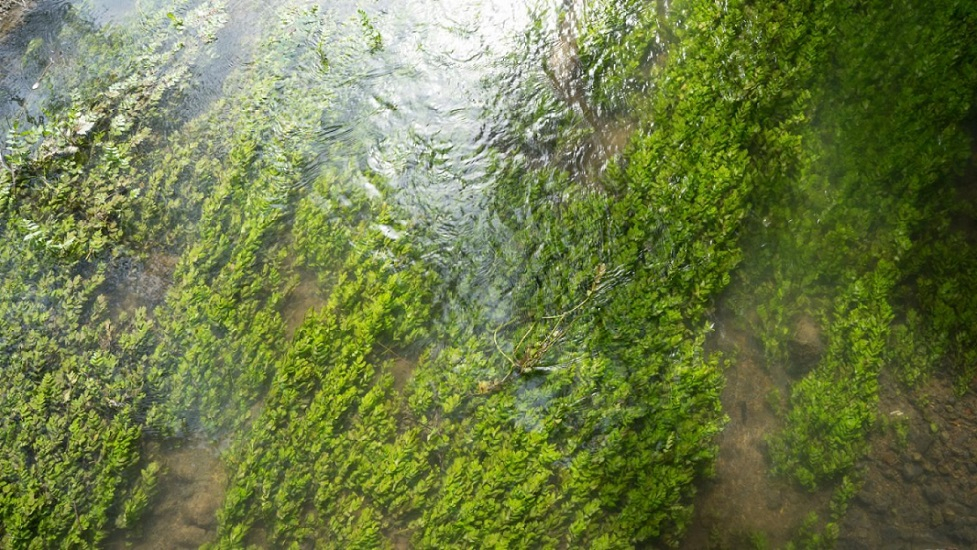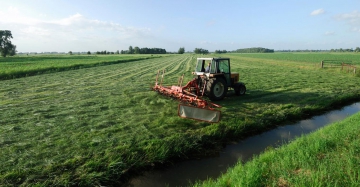After more than three decades of water stewardship consulting work, Antea Group and our global partners have remotely screened more than 26,000 facilities around the world for water-related risks and opportunities, and conducted over 400 on-the-ground watershed assessments.
This experience, coupled with mounting evidence of increasing water scarcity and quality issues around the globe, has shown us that water security — which promotes sustainable water access, availability, and quality for all — is the next evolution in corporate water stewardship. And while every business entity, government, and individual can play a role in advancing water security, we ardently believe the food and beverage sector is uniquely positioned to take the lead.
The Simple Argument: Food & Beverage Companies Consume the Most Freshwater Resources
Simply put, food and beverage companies — and many of their supply chain counterparts — use the vast majority of our world’s freshwater resources. After all, water is not only a primary product ingredient, but also a must-have resource for growing other essential ingredients and production processes.
To put that water usage into perspective, according to the Food and Agriculture Organization of the United Nations, globally we use a whopping 70% of our water resources for agriculture and irrigation — a statistic that is directly tied to the food and beverage industry. In addition, 19% goes toward industrial uses, which leaves just 11% being consumed by municipalities.
The simple bottom line? Those whom use the most water are undoubtedly in the best position to uncover opportunities, and implement efficiencies, to advance water security.
The Social Argument: You Have a Duty to Tackle Global Water Security Issues
For food and beverage companies, water is the foundation of their business. But water is also the foundation of life — and diminishing quality, access, and availability is a rising global challenge as the population grows and the realities of climate change reveal themselves more and more each day. In fact, according to the United Nations, 1.8 billion people will be living in countries or regions with absolute water scarcity by 2025. Furthermore, two-thirds of the world's population could be living under water stressed conditions.
The social bottom line? As some of the world’s largest water users, food and beverage companies have the duty and opportunity to help protect this vital resource so people and communities — who are also their customers — can survive and thrive, too.
The Environmental Argument: Addressing Global Water Risks is Good for All
There’s no doubt that climate change poses one of the greatest challenges to the continued prosperity of businesses, communities, and ecosystems around the world. As it relates to our finite water resources, rising heat, shifting rainfall patterns, and reduced water storage resilience are contributing to the shrinking of water resources.
The environmental bottom line? With many companies and their supply chain vendors operating across diverse regions and ecosystems around the world, they have the ability to gain a more holistic view of water risks and opportunities that exist locally and globally. And they can use that insight and their local contacts to carve a path toward water security.
The Business Argument: Water Security is a Long-Term Strategy
While many food and beverage companies’ want to promote the greater social and environmental good, their water and sustainability efforts are rooted in business strategy — and for good reason. Traditional water stewardship practices such as reducing water usage, enhancing efficiency, and treating and recycling waste water, can all have a positive impact on the bottom line.
But in light of the water challenges our world is facing, these traditional practices are no longer enough to sustain a business long-term and it’s time to shift the focus to water security.
The business bottom line? As demand and competition for diminishing water resources continues to rise, food and beverage companies will arguably feel the greatest economic impact if they maintain the status quo. And as PepsiCo’s Vice President of Global Water and Environmental Solutions, Roberta Barbieri, recently said: “Every [food and beverage company] has a vested interest in protecting the world’s water supply — if for no other reason than to bolster the future of their business and reputation.”
Food for Thought
At the end of the day, water is a shared resource — and the food and beverage sector has the biggest share. As a result, the industry has the opportunity to play a leading role in advancing water security, ultimately helping ensure the vitality of the people, communities, and ecosystems in which their businesses operate.
Learn more about Antea Group's water stewardship services today.
Want more news and insights like this?
Sign up for our monthly e-newsletter, The New Leaf. Our goal is to keep you updated, educated and even a bit entertained as it relates to all things EHS and sustainability.
Get e-NewsletterHave any questions?
Contact us to discuss your environment, health, safety and sustainability needs today.





